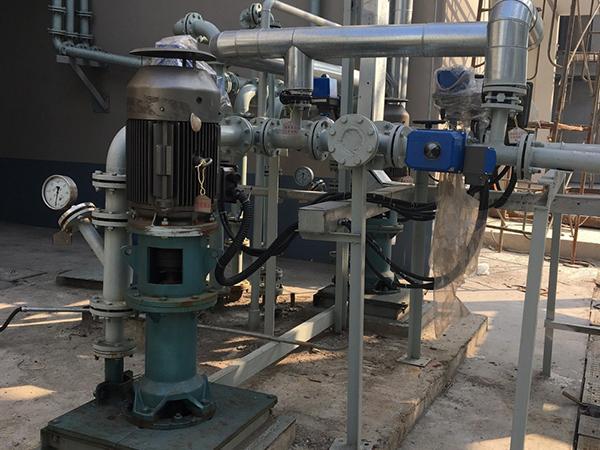English
- Afrikaans
- Albanian
- Amharic
- Arabic
- Armenian
- Azerbaijani
- Basque
- Belarusian
- Bengali
- Bosnian
- Bulgarian
- Catalan
- Cebuano
- Corsican
- Croatian
- Czech
- Danish
- Dutch
- English
- Esperanto
- Estonian
- Finnish
- French
- Frisian
- Galician
- Georgian
- German
- Greek
- Gujarati
- Haitian Creole
- hausa
- hawaiian
- Hebrew
- Hindi
- Miao
- Hungarian
- Icelandic
- igbo
- Indonesian
- irish
- Italian
- Japanese
- Javanese
- Kannada
- kazakh
- Khmer
- Rwandese
- Korean
- Kurdish
- Kyrgyz
- Lao
- Latin
- Latvian
- Lithuanian
- Luxembourgish
- Macedonian
- Malgashi
- Malay
- Malayalam
- Maltese
- Maori
- Marathi
- Mongolian
- Myanmar
- Nepali
- Norwegian
- Norwegian
- Occitan
- Pashto
- Persian
- Polish
- Portuguese
- Punjabi
- Romanian
- Russian
- Samoan
- Scottish Gaelic
- Serbian
- Sesotho
- Shona
- Sindhi
- Sinhala
- Slovak
- Slovenian
- Somali
- Spanish
- Sundanese
- Swahili
- Swedish
- Tagalog
- Tajik
- Tamil
- Tatar
- Telugu
- Thai
- Turkish
- Turkmen
- Ukrainian
- Urdu
- Uighur
- Uzbek
- Vietnamese
- Welsh
- Bantu
- Yiddish
- Yoruba
- Zulu
Telephone: +86 13120555503
Email: frank@cypump.com
Dec . 02, 2024 01:58 Back to list
Efficient Electric Pump for Clean Water Supply and Watering Solutions
The Rise of Electric Clean Water Pumps A Sustainable Solution for Modern Water Needs
In recent years, the demand for clean water has surged across the globe. As populations grow and environmental awareness increases, innovative solutions to water scarcity and quality issues have become paramount. Among these solutions, electric clean water pumps have emerged as a vital tool to ensure the availability of safe drinking water. These pumps are not only efficient and effective but also play a crucial role in promoting sustainability and reducing our carbon footprint.
Electric clean water pumps are designed to transport water from one location to another, ensuring that households and communities have reliable access to clean water. Unlike traditional pumps, which may rely on fossil fuels, electric pumps harness energy from renewable sources such as solar or wind power. This feature significantly reduces greenhouse gas emissions and supports the global transition towards a more sustainable future.
One of the primary advantages of electric clean water pumps is their efficiency. Modern electric pumps are designed with advanced technology that optimizes performance while minimizing energy consumption. This efficiency translates to lower operating costs for users, making them an economically viable option for both urban and rural applications. In areas where clean water is scarce, electric pumps can be a game-changer, allowing communities to access safe water sources that were previously unavailable.
Moreover, electric clean water pumps are versatile and adaptable to various settings. They can be used for a range of applications, including residential, agricultural, and industrial purposes. In agriculture, for instance, these pumps facilitate irrigation, ensuring that crops receive the necessary water for growth. This capability becomes increasingly important in regions prone to drought, where water scarcity can threaten food production and local economies.
electric clean water pump

In addition to their practical benefits, electric clean water pumps also contribute to improved health outcomes. Access to clean water is fundamental to human health and well-being. By providing a reliable supply of safe drinking water, these pumps help prevent waterborne diseases that often plague communities without adequate water infrastructure. This health impact is particularly critical in developing countries, where thousands of lives are lost each year due to contaminated water sources.
The installation of electric clean water pumps can also drive economic development. By ensuring reliable water access, local businesses can thrive, agricultural productivity can increase, and job opportunities can be created. Communities can become self-sufficient, reducing their dependency on external water sources and fostering resilience in the face of climate change.
However, the implementation of electric clean water pumps is not without challenges. Initial costs for purchasing and installing these pumps can be a barrier, particularly in low-income regions. Therefore, it is essential for governments, NGOs, and private sectors to collaborate in funding and providing subsidies to make these technologies more accessible. Furthermore, community training and education on maintaining and operating these pumps are crucial to ensure their longevity and sustainability.
The future of electric clean water pumps looks promising, with advancements in technology poised to enhance their capabilities further. Innovations such as smart sensors and IoT connectivity can provide real-time data on water levels, pump performance, and maintenance needs. This smart technology can help optimize water usage, reduce waste, and ensure that communities get the most out of their electric pumps.
In conclusion, electric clean water pumps are a sustainable solution to the pressing global challenge of water scarcity and contamination. By providing efficient, reliable, and environmentally friendly access to clean water, these pumps not only enhance the quality of life for individuals and communities but also contribute to overall public health and economic development. As we continue to face the realities of climate change and growing populations, investing in electric clean water pumps will be critical for ensuring a sustainable future where everyone has access to safe and clean water.
-
ISG Series Vertical Pipeline Pump - Chi Yuan Pumps Co., LTD.|Advanced Hydraulic Design&Energy-Efficient Solutions
NewsJul.30,2025
-
ISG Series Vertical Pipeline Pump - Chi Yuan Pumps Co., LTD.
NewsJul.30,2025
-
ISG Series Vertical Pipeline Pump - Chi Yuan Pumps Co., LTD.|energy-efficient fluid handling&industrial durability
NewsJul.30,2025
-
ISG Series Vertical Pipeline Pump - Chi Yuan Pumps | Advanced Engineering&Industrial Efficiency
NewsJul.30,2025
-
ISG Series Pipeline Pump - Chi Yuan Pumps | High Efficiency, Energy Saving
NewsJul.30,2025
-
ISG Series Vertical Pipeline Pump-Chi Yuan Pumps|High Efficiency&Reliable Performance
NewsJul.29,2025










